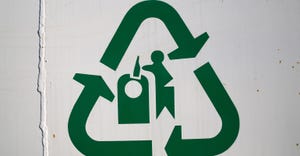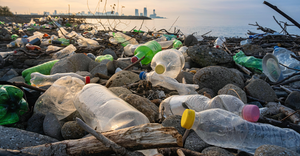Molson Coors Brewing Company, headquartered in Denver and Montreal, recently issued its Our Beer Print 2015 Corporate Responsibility Report, covering the company’s 2014 progress toward its 2020 goals.
“Through Our Beer Print, we are striving to increase our environmental performance, support an engaged workforce, and develop a social purpose for our core brands,” said Mark Hunter, president and CEO of Molson Coors in a press release. “In 2014, Molson Coors was recognized as a member of the Dow Jones Sustainability World Index for the third consecutive year. We’re proud of this recognition, which reflects our longstanding commitment to corporate responsibility and transparent reporting.”
The company developed its sustainability strategy in response to the environmental issues found to be most material to its business. The strategy includes 2020 targets for improvement and incorporates how Coors Molson manages energy, carbon emissions, water, waste water and solid waste.
The strategy is the company’s commitment to investing in waste water treatment that will generate clean energy from the waste water produced by its breweries. The use of anaerobic digestion waste water treatment technology allows the company to treat waste water to a higher quality and generate biogas that to produce heat or electricity. The energy can be used to power its breweries. In terms of solid waste, the company goal is to send zero waste to landfill by 2020.
Molson Coors says it made progress last year toward its 2020 targets of zero waste to landfill, 25 percent energy reduction and 15 percent reduction in both carbon and water intensity.
Energy Reduction: Molson Coors set a goal in 2014 to reduce energy use by 3.4 percent – the equivalent to the average annual energy consumption of 1,600 households. The company achieved 26 percent of the 2020 targeted energy reductions.
Reduce Packaging Weight: With a goal to reduce packaging weight by 4 percent by 2015 from 2012 levels, the company reports reducing its packaging weight by 21 percent against that target. In 2014, a total of 100,000 tons of packaging waste were avoided. Packaging can account for up to 50 percent of an individual product’s footprint. While the shift in packaging mix and consumer trends have given opportunities to exceed targets, Molson Coors has reduced weight savings through light weighting initiatives and changing the materials for a number of formats.
Zero waste to landfill by 2020: The brewer reduced the amount of waste generated per pint of beer produced by 11.5 percent in 2014, and continuing with its sustainability strategy, said all operations will be landfill-free by 2020. All three Molson Coors breweries in the United Kingdom already are zero waste to landfill.
Water Efficiency: With a 2020 goal of improving water efficiency by 20 percent from 2011 levels, the company already achieved 22 percent of its 2020 targeted water reductions with 6 years remaining.
Greenhouse Gas Reductions: Molson Coors has achieved 53 percent of 2020 targeted Greenhouse Gas reductions with 6 years remaining. It has reduced carbon emissions by 2.4 percent, equivalent to 7,700 tons, and 53 percent of the carbon reduction targets have been achieved to date.
About the Author(s)
You May Also Like


